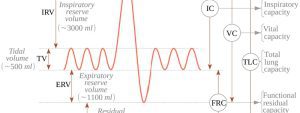At Care Net Consultants, understanding your lung health is crucial for your overall well-being. Lung function tests are valuable tools used by healthcare providers to assess how well your lungs are working and to diagnose respiratory conditions. Let’s explore the purpose and types of lung function tests commonly used:
Purpose of Lung Function Tests
Lung function tests, also known as pulmonary function tests (PFTs), are non-invasive procedures that measure how well your lungs take in and exhale air and how efficiently they transfer oxygen into the bloodstream. These tests help healthcare providers:
- Diagnose Respiratory Conditions such as asthma, chronic obstructive pulmonary disease (COPD), and interstitial lung diseases.
- Monitor Lung Function: to track the progression of lung diseases and assess the effectiveness of treatments.
- Evaluate Surgical Risks: Before certain surgeries, to ensure your lungs can withstand the procedure.
Types of Lung Function Tests
- Spirometry:
- Purpose: Measures the amount and speed of air you can inhale and exhale.
- Procedure: You’ll be asked to breathe into a tube connected to a spirometer, which records your lung function parameters.
- DLCO (Diffusion Capacity of the Lung for Carbon Monoxide):
- Purpose: Assesses how well oxygen passes from your lungs into your bloodstream.
- Procedure: Inhale a small amount of carbon monoxide, then measure how much is absorbed into your bloodstream.
- Peak Flow Test:
- Purpose: Measures how fast you can exhale air from your lungs.
- Procedure: You’ll blow into a handheld device called a peak flow meter, which measures the force of your exhalation.
- Lung Volume Tests:
- Purpose: Measures the total amount of air your lungs can hold and the air distribution throughout your lungs.
- Procedure: Typically involves sitting in a small booth and breathing into a mouthpiece connected to a computer.
Why Lung Function Tests Are Important
- Early Detection: Identifying lung function abnormalities early allows for prompt treatment and management of respiratory conditions.
- Monitoring Progress: Regular lung function tests help track changes in lung health over time, guiding adjustments to your treatment plan.
- Improving Quality of Life: By understanding your lung function, you and your healthcare team can work together to optimise your respiratory health and improve your overall quality of life.
Understanding lung function tests empowers you to take an active role in managing your respiratory health. If your healthcare provider recommends a lung function test, don’t hesitate to ask questions and discuss any concerns you may have. We are committed to supporting you on your journey to better lung health at Care Net Consultants. Please get in touch with us if you have any further questions or would like to schedule a lung function test.




